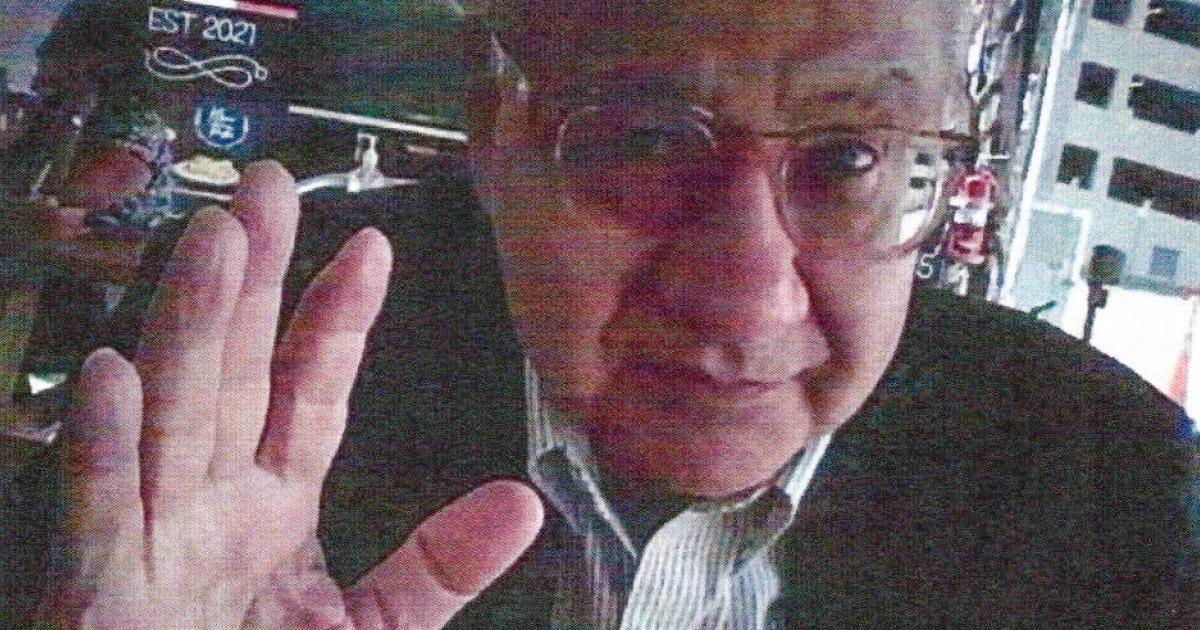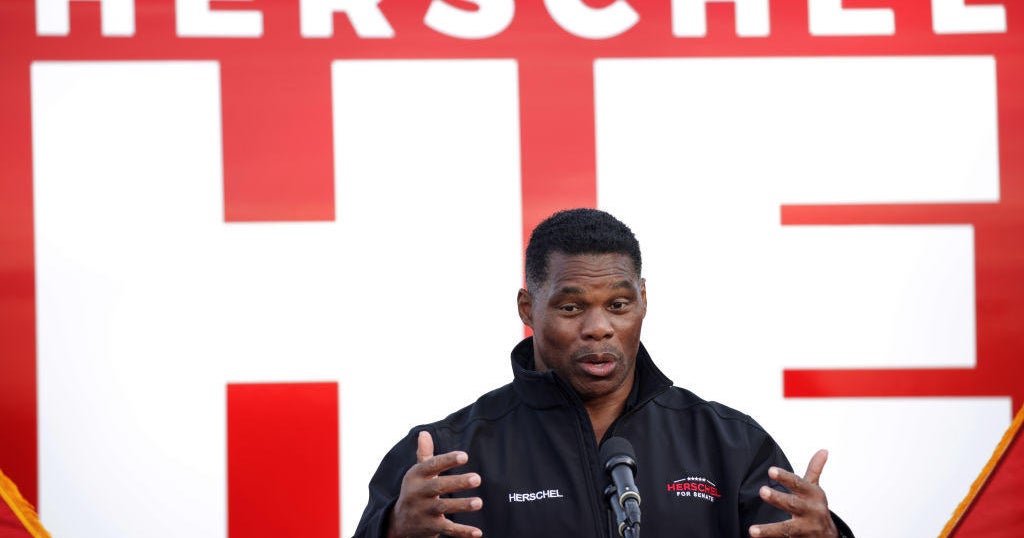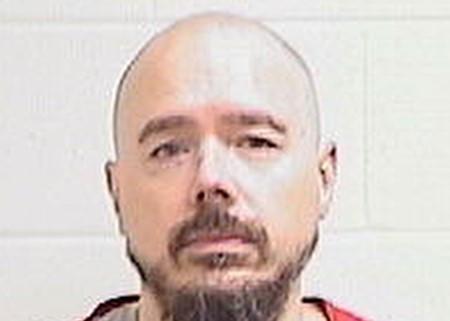CBS News
Victor Manuel Rocha, ex-U.S. ambassador, admits to spying for Cuba for decades

Washington — A former U.S. diplomat admitted to spying for Cuba for decades, telling a judge on Thursday that he intends to plead guilty to federal charges stemming from his espionage on behalf of the communist regime.
Victor Manuel Rocha, the former U.S. ambassador to Bolivia, was indicted in December on charges that he allegedly spied for Cuba’s intelligence agency for four decades.
During a hearing in federal court in Miami on Thursday, Rocha said he had agreed to plead guilty to two charges of conspiring to act as an agent of a foreign government, according to The Associated Press. Prosecutors agreed to dismiss more than a dozen other charges in exchange for his guilty plea, the AP said.
The two counts carry a maximum sentence of between five and 10 years behind bars. The AP reported that Rocha replied “I am in agreement” when the judge asked him if he wanted to change his plea. His intention to change his plea was reflected on the case’s docket after the hearing. Rocha is due back in court on April 12.
Investigators alleged Rocha was recruited by Cuba’s spy agency, the Directorate of Intelligence, in Chile in 1973. The intelligence service instructed him to create a cover story to conceal his double life, according to prosecutors.
After Rocha’s arrest, Attorney General Merrick Garland described the case as “one of the highest-reaching and longest-lasting infiltrations of the U.S. government by a foreign agent.” He said Rocha pursued U.S. government jobs that “would provide him with access to non-public information and the ability to affect U.S. foreign policy.”
Department of Justice / AP
The government has not publicly said what information Rocha might have divulged to Cuba or how he could have influenced U.S. policy. Rocha held high-level security clearances, giving him access to top secret information, according to the indictment.
Rocha had at least three meetings with an undercover FBI agent, whom the retired diplomat believed to be a representative of Cuba’s spy agency. He referred to the U.S. as “the enemy” and said “what we have done” was “enormous” and “more than a grand slam,” according to the criminal complaint.
“My number one concern; my number one priority was … any action on the part of Washington that would endanger the life of the leadership, or the revolution itself,” Rocha allegedly told the undercover agent.
Rocha was born in Colombia and became a naturalized U.S. citizen in 1978. For more than two decades beginning in 1981, he worked for the State Department in various positions in Latin America, including as ambassador to Bolivia from 2000 to 2002. Cuba fell under his purview when he served as director for inter-American affairs at the National Security Council and as a deputy principal officer at the U.S. diplomatic mission in Havana. After leaving the State Department, he was an adviser to the commander of the U.S. Southern Command, whose area of responsibility includes Cuba.
Rocha’s employment with the U.S. government overlapped with that of Ana Montes, a former Defense Intelligence Agency analyst who spent 20 years in prison for spying for Cuba before being released in 2023. She was recruited by Cuban intelligence in 1984 before she was hired by the Defense Intelligence Agency.
In one of his meetings with the undercover FBI agent, prosecutors said Rocha praised a U.S. government employee who had spied for Cuba, saying she “was betrayed.”
“Sadly she would have done much more had she not been betrayed,” he said, later identifying her as “Ana,” according to the indictment.
CBS News
Indiana conducts first execution in 15 years, puts quadruple killer to death

Michigan City, Indiana — An Indiana man convicted of killing four people including his brother and his sister’s fiancé decades ago was put to death Wednesday, without any independent witness, marking the state’s first execution in 15 years.
Joseph Corcoran, 49, was pronounced dead at 12:44 a.m. CST at the Indiana State Prison in Michigan City, Indiana, the Indiana Department of Correction said in a statement. CBS Indianapolis affiliate WTTV reports that officials said the execution process started just after midnight.
Indiana Department of Corrections via AP
Corcoran was scheduled to be executed with the powerful sedative pentobarbital, but the state agency’s statement did not mention that drug. Corcoran’s execution was the 24th in the U.S. this year.
According to WTTV, the statement said Corcoran told officials his last words were, “Not really. Let’s get this over with.”
He was convicted in the July 1997 shootings of his brother, 30-year-old James Corcoran, his sister’s fiancé, 32-year-old Robert Scott Turner, and two other men, Timothy G. Bricker, 30, and Douglas A. Stillwell, 30.
According to court records, before Corcoran fatally shot the four victims he was under stress because the forthcoming marriage of his sister to Turner would necessitate moving out of the Fort Wayne, Indiana, home he shared with his brother and sister.
While jailed for those killings, Corcoran reportedly bragged about fatally shooting his parents in 1992 in northern Indiana’s Steuben County. He was charged in their killings but acquitted.
Last summer, Gov. Eric Holcomb announced plans to resume state executions following a yearslong hiatus marked by a scarcity of lethal injection drugs nationwide.
The state provided limited details about the execution process, and no media witnesses were permitted under state law.
Indiana and Wyoming are the only two states that do not allow members of the media to witness state executions, according to a recent report by the Death Penalty Information Center.
Corcoran’s attorneys had fought his death penalty sentence for years, arguing he was severely mentally ill, which affected his ability to understand and make decisions. This month, his attorneys asked the Indiana Supreme Court to stop his execution but the request was denied.
Corcoran exhausted his federal appeals in 2016. But his attorneys asked the U.S. District Court of Northern Indiana last week to stop his execution and hold a hearing to decide if it would be unconstitutional because Corcoran has a serious mental illness. The court declined to intervene Friday, and the U.S. Court of Appeals for the 7th Circuit did the same Tuesday.
Corcoran’s attorneys then asked the U.S. Supreme Court issue an emergency order halting his execution, but the high court denied their request for a stay late Tuesday, ending Corcoran’s options with the courts.
His sole remaining hope then became Holcomb, who could have commuted Corcoran’s death sentence. But that commutation never came and the execution proceeded as scheduled.
WTTV says Holcomb issued a statement saying Corcoran’s case “has been reviewed repeatedly over the last 25 years – including 7 times by the Indiana Supreme Court and 3 times by the U.S. Supreme Court, the most recent of which was tonight. His sentence has never been overturned and was carried out as ordered by the court.”
Indiana’s last state execution was in 2009 when Matthew Wrinkles was put to death for killing his wife, her brother and sister-in-law in 1994.
Since then, 13 executions were carried out in Indiana, but those were initiated and performed by federal officials in 2020 and 2021 at a federal prison in Terre Haute.
State officials have said they couldn’t continue executions because a combination of drugs used in lethal injections had become unavailable.
For years, there has been a shortage across the country because pharmaceutical companies have refused to sell their products for that purpose. That’s pushed states, including Indiana, to turn to compounding pharmacies, which manufacture drugs specifically for a client. Some use more accessible drugs such as the sedatives pentobarbital or midazolam, both of which, critics say, can cause intense pain.
Religious groups, disability rights advocates and others have opposed his execution. About a dozen people, some holding candles, held a vigil late Tuesday to pray outside the prison, which is surrounded by barbed wire fences in a residential area about 60 miles east of Chicago.
“We can build a society without giving governmental authorities the right to execute their own citizens,” said Bishop Robert McClory of the Diocese of Gary, who led the prayers.
Other death penalty opponents also demonstrated outside the prison Tuesday night, some holding signs that read “Execution Is Not The Solution” and “Remember The Victims But Not With More Killing.”
“There is no need and no benefit from this execution. It’s all show,” said Abraham Borowitz, director of Death Penalty Action, his organization that protests every execution in the U.S.
Prison officials said in a brief statement Tuesday evening that Corcoran “requested Ben & Jerry’s ice cream for his last meal.”
Corcoran said farewell late Tuesday to relatives, including his wife, Tahina Corcoran, who told reporters outside the prison that they discussed their faith and their memories, including attending high school together. She reiterated her request for Indiana’s governor to commute her husband’s death sentence.
Tahina Corcoran said her husband is “very mentally ill” and she didn’t think he fully grasped what was happening to him.
“He is in shock. He doesn’t understand,” she said.
CBS News
1 killed, 9 injured in shooting, fiery crash in Baltimore suburb of Towson, police say

BALTIMORE — One person was killed and nine others injured in a shooting and fiery crash in the Baltimore suburb of Towson Tuesday night, authorities said.
Law enforcement responded at around 7:15 p.m. in the 8500 block of Loch Raven Boulevard, Baltimore County Police Chief Robert McCullough said in a news briefing.
“It appears to be a mass shooting incident,” McCullough told reporters. “We have multiple persons who were shot. Right now, we are determining the circumstances and the conditions in this case.”
The first arriving officer found a vehicle on its side in flames near a funeral home, McCullough said, and then several gunshot victims were found in the area.
“There appears to be some type of incident that led to the vehicle crashing and catching on fire,” McCollough said. “Investigators are looking into the circumstances leading up to that.”
The name of the person killed and the manner of death was not released, nor were the conditions of the nine people injured. McCollough did not specify how many of the nine people injured were gunshot victims.
At this time, investigators believe this was an isolated and targeted incident, with no further threat to the community, he added. It’s unclear if any suspects have been arrested. There was no word on a possible motive.
“We will leave no stone unturned and we will dedicate every resource to this,” McCullough said. “We don’t generally see incidents like this in our community in Baltimore County. I assure you as your police chief that we will put all resources toward trying to clear this case.”
The Bureau of Alcohol, Tobacco, Firearms and Explosives was at the scene assisting police, as was the Baltimore County Fire Department.
“This is an incident that is shocking, particularly for those of us in Baltimore County,” said Baltimore County Executive Johnny Olszewski. “These types of incidents are unheard of here, so it really shocks the conscience. However, we want our residents to know that we are, as always, fully committed to ensuring that both our fire and police departments have the full support and all the resources they need from the Baltimore County government to ensure that they bring this investigation to a conclusion.”
Anyone with information is asked to call Baltimore County Police at 410-887-4636.
CBS News
Trump taps Herschel Walker for ambassador to the Bahamas

President-elect Donald Trump announced he will nominate Herschel Walker, the former football player whose 2022 Senate run was plagued by controversy, to serve as U.S. ambassador to the Bahamas.
“Herschel has spent decades serving as an Ambassador to our Nation’s youth, our men and women in the Military, and athletes at home and abroad,” Trump said on social media Tuesday night.
Walker would need to be confirmed by the Senate to assume the role. The Senate has not confirmed a U.S. ambassador to the Bahamas in over a decade. Former President Barack Obama had nominated Cassandra Butts for the role in 2014, but the Senate never even brought her nomination up for a vote, according to The Associated Press. She died in 2016.
Trump in his first term nominated Doug Manchester in 2017 for the ambassador role, but his nomination stalled for over two years. CBS News in 2019 also uncovered evidence of a possible pay-to-play scheme for the role. He eventually withdrew and Trump went on to nominate William Douglass in 2020. Douglass’ nomination was withdrawn by President Biden when he took office, and Mr. Biden in turn nominated Calvin Smyre, who has not been confirmed by the Senate.
Absent an official ambassador to the Bahamas, Kimberly Furnish currently serves in the role of Chargé d’Affaires.
Walker rose to national prominence as a star running back for the Georgia Bulldogs, winning the Heisman trophy in 1982. He spent his first few years of professional ball in the United States Football League before it folded, and then moved on to the NFL.
Walker reentered the national spotlight when, at Trump’s urging, he challenged Georgia’s Democratic Senator Raphael Warnock for his seat in 2022. The race featured several controversies, including two women claiming that Walker — who was running as an anti-abortion candidate — had paid for them to get abortions.
Walker denied both allegations.
In one instance, Walker admitted to writing a check for a woman who said he paid for her to get an abortion in 2009, but he said he hadn’t known what the money was for.
Another woman claimed Walker paid her to get an abortion while the two carried out a six-year relationship while he was married to another woman and playing in the NFL. During a news conference back in 2022, she said she couldn’t go through with the procedure when she went to get it herself, so Walker took her to a clinic in the Dallas area the next day and waited for her while she got the abortion.
“This was a lie a week ago and it is a lie today,” Walker said at the time following an interview the woman gave a week after the initial news conference.
Warnock would go on to win the election in a runoff after neither candidate received more than 50% of the vote on election day.
Aaron Navarro and
contributed to this report.




